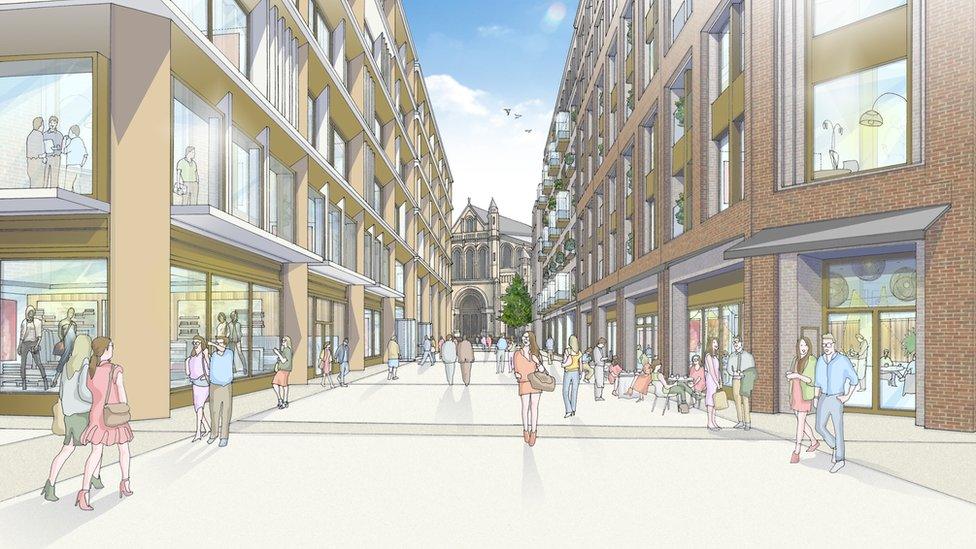Assembly Rooms: Campaigners call for public ownership
- Published
Campaigners aim to preserve historic Assembly Rooms
It's one of Belfast's most historically significant buildings - the city's version of Dublin's Leinster House, according to one expert.
It belongs to the English company behind the stalled Tribeca development and sits in a largely abandoned corner of the city centre.
Campaigners want it to be handed over to the public - to save it from "ruin".
Castlebrooke Investments, which owns the listed building, said it has "worked proactively with all the relevant, statutory authorities" to ensure the building is protected.
'A whole lot of history here'
"Here is our most symbolic, historic building and look at the state of it," John Gray from Reclaim the Enlightenment told BBC News NI.
"It was here that the last great assembly of the blind harpers of Ireland took place - in this building in 1792."
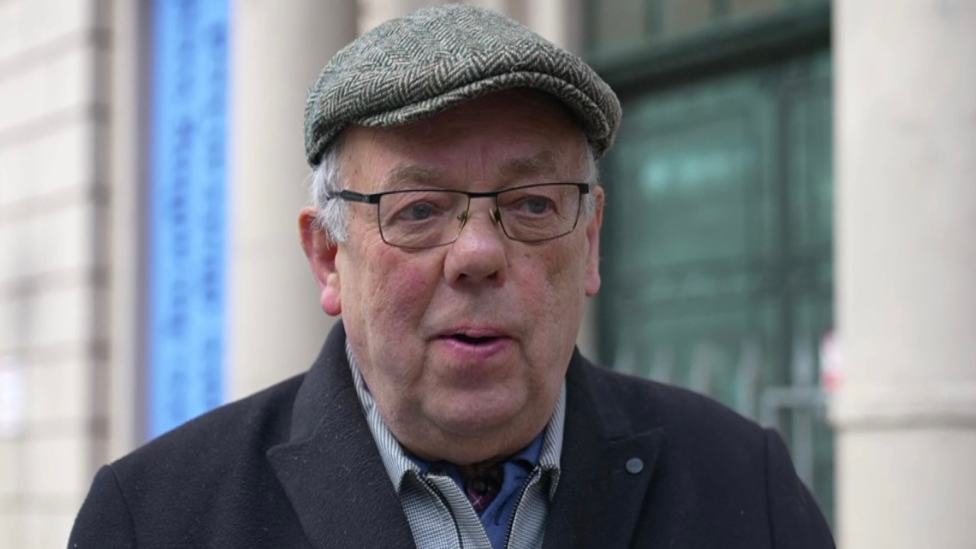
John Gray from Reclaim the Enlightenment says there's a "whole lot of history" associated with the building
"It was here that the project for Belfast to establish a slave trading company was scuppered," Mr Gray continued.
"It was here that the leaders of the United Irish Rebellion, including Henry Joy McCracken, were court marshalled immediately prior to being led to High Street to be executed.
"So there's a whole lot of history here."
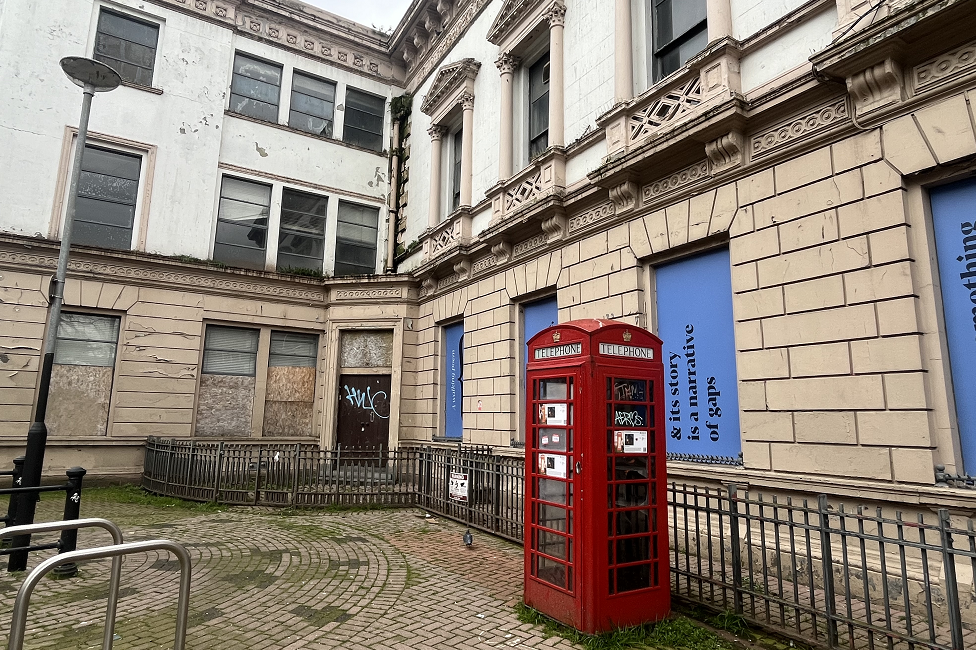
More recently the building was a Northern Bank
Campaign group Reclaim the Enlightenment along with the charity Museum of the Troubles and Peace want the building to be secured for public use once again - with one section used to host cultural events, and another for a museum about the Troubles and peacebuilding.
Built in 1769, the Assembly Rooms is at the corner of North Street and Waring Street.
'Worse and worse'
In most recent years, it was home to the Northern Bank, but was vacated for good about the year 2000.
In 2003, it was added to the Ulster Architectural Heritage's "at risk" register. It's one of about a thousand buildings on the register - 800 of which are listed.
Heritage at risk officer Sebastian Graham said the deterioration of the building had been "marked".
"You can see over the years, it's got progressively worse and worse," he said.
"As we stand at the minute there are some serious issues with it.
"The longer the insides are shut up, there's no ventilation. That will cause all sorts of issues inside and that will result in dry rot and things like that, which will ultimately allow the historic internal fabric to be removed.
"That shouldn't be the case. We could move in now. Stop that from happening. It would just make a lot of sense in the long run."
Castlebrooke Investments has proposed that the Assembly Rooms be transformed into a boutique hotel as part of the £500m Tribeca development.
Despite plans for that scheme having been greenlit four years ago, work on the ground is yet to be carried out - meaning the 12 acres of land earmarked for development have been left untouched and largely derelict.
A Castlebrooke Investments spokesperson said the company understands "the historical and built-heritage importance of the Assembly Rooms".
The spokesperson added: "For the last five years, we have also engaged regularly with Belfast City Council about a potential civic use for the building which we remain open to, if suitable commercial terms can be agreed.
"No such terms nor any process to achieve a civic use has ever been formally proposed to us which we made clear at recent, positive meetings with political party group leaders in Belfast City Hall. Our appointed commercial advisors, Colliers, stand ready to receive any such proposals should Belfast City Council want to contact them."
Earlier this year, the chief executive of Belfast City Council said there had been "beyond a certain level of frustration in relation to the activity on the Tribeca site".
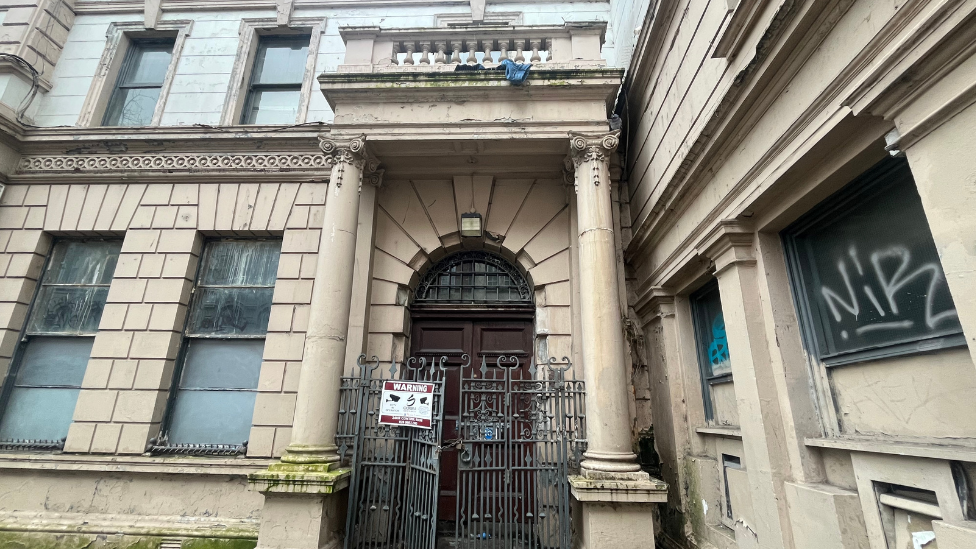
Council officers are exploring the possibility of buying the site
He confirmed the council was exploring the possibility of vesting the land.
A spokesperson told BBC News NI that council officers were continuing to explore that possibility - in addition to potentially purchasing the Assembly Rooms.
They said: "A report on options will be brought before elected members for consideration in due course, along with an update report on the potential to purchase the Assembly Rooms, also agreed by the Strategic Policy and Resources Committee on 23 February 2024."
Speaking about the maintenance of The Assembly Rooms, the spokesperson said that is the responsibility of the building owner.
"Belfast City Council has enforcement powers where a building is deemed dangerous, or where works are urgently necessary to preserve a listed building and will take enforcement action if it is considered necessary to do so," they added.
Are NI's historic listed buildings deteriorating?
'A symbol for Belfast'
Irene Boada Montagut from the Museum of the Troubles and Peace told BBC News NI: "I would say to the owners of the building, please give it to the people.
"This is a symbol for Belfast. This is a space in which we can learn about peacebuilding, all the reasons why people engaged in violence, all the people and what way they were affected.

Irene Boada Montagut says the building is a "symbol for Belfast"
"There are loads of stories we don't know. We know there are orange and green museums, but this is about a museum for everybody. Why should we have to wait? Our youth, our visitors - they should have the opportunity to learn," she added.
John Smylie, director of Place Lab Architects, said the importance of the Assembly Rooms could not be overstated.
"Arguably, this is our most important heritage building in Belfast. This is our Leinster House," he said.
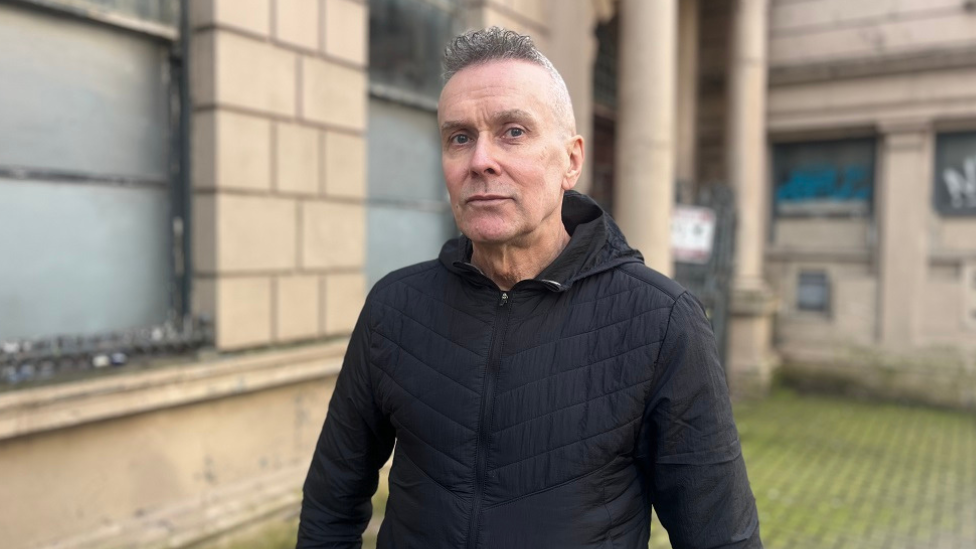
John Smylie argues the Assembly Rooms is one of Belfast's most important heritage buildings
The expert warned that buildings like the Assembly Rooms required "a lot of TLC, especially if they're empty".
He said: "A lot of effort for a derelict building like this has to be invested in making sure there's ventilation in the building. Because a mixture of water ingress and poor ventilation can cause dry rot, which is disastrous for a building."
Mr Smylie added that it was important that work to restore the Assembly Rooms begins - to make sure it stays "intact".
- Published7 August 2022
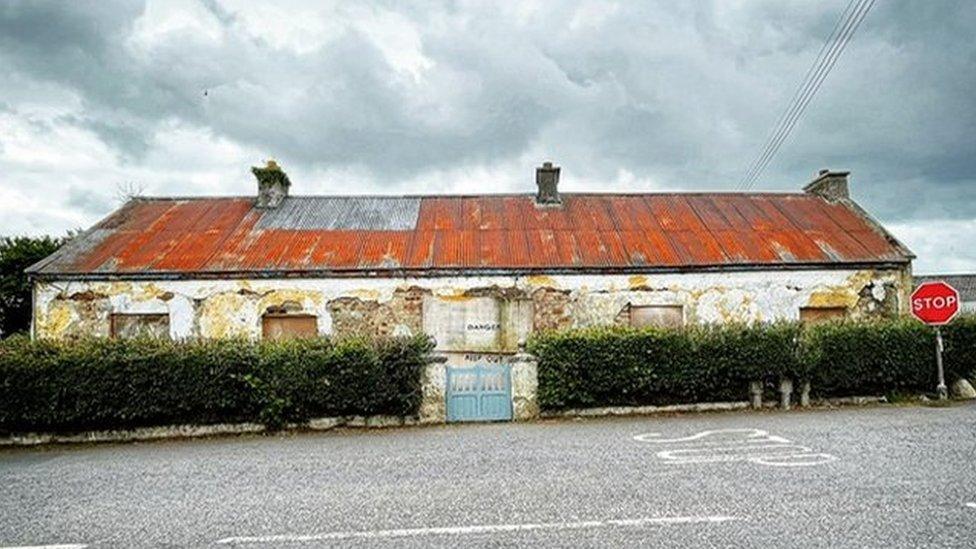
- Published22 September 2022
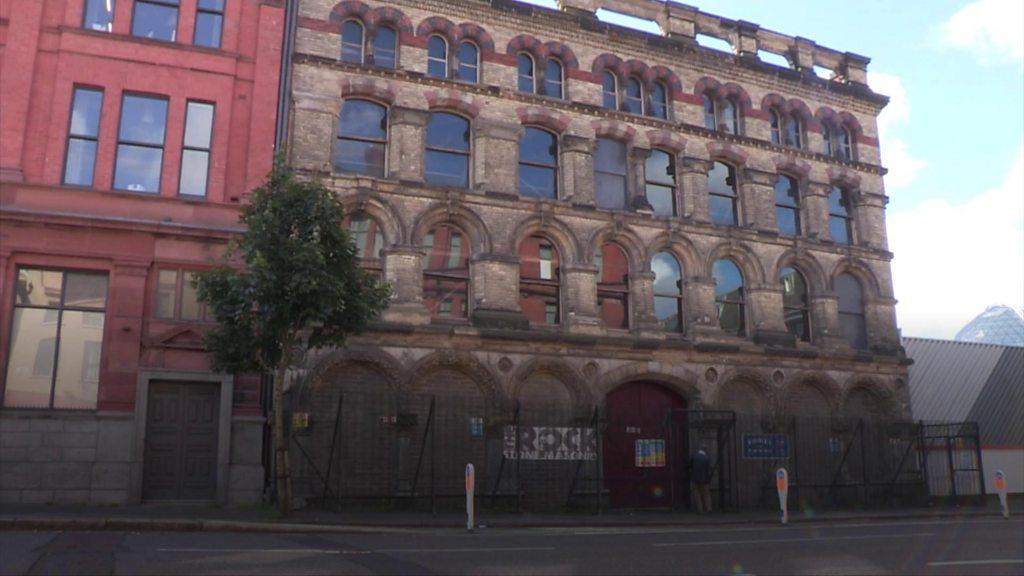
- Published13 June 2023
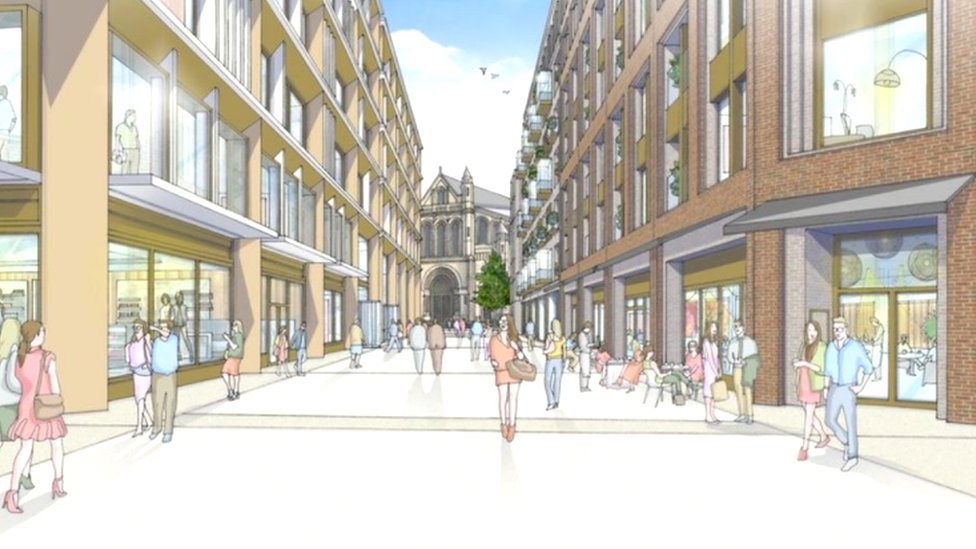
- Published4 September 2020
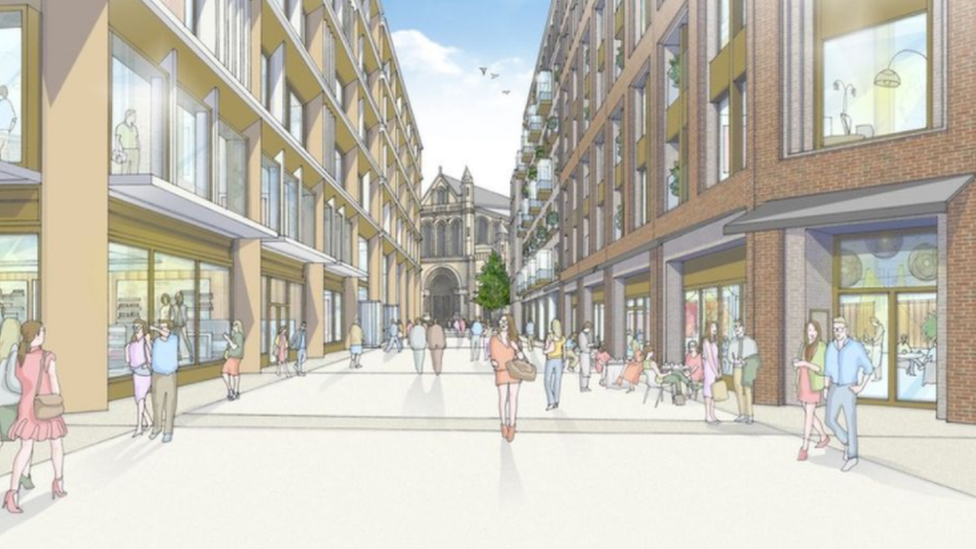
- Published22 January 2020
